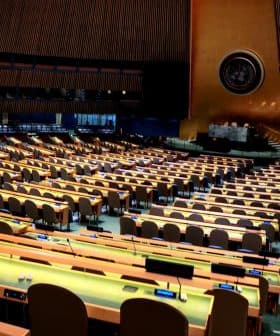Physicists Win Nobel Prize for Explaining Climate Change
The 2021 Nobel Prize in physics was awarded to Syukuro Manabe, Klaus Hasselmann, and Giorgio Parisi for their groundbreaking research on understanding complex physical systems, including Earth’s climate and climate change. The laureates’ work has significantly contributed to advancing our knowledge of climate science and the properties of complex physical systems, highlighting the challenges in addressing climate change and the need for urgent action.
The 2021 Nobel Prize in physics has been awarded to three scientists for innovative research in understanding complicated physical systems, including Earth’s climate and climate change.
Two of the scientists, the Japanese-born American Syukuro Manabe and the German Klaus Hasselmann, jointly won half of the prize for their independent research in modeling the planet’s climate and explaining the inner workings of climate change, including the impact of humans.
The discoveries being recognized this year demonstrate that our knowledge about the climate rests on a solid scientific foundation, based on a rigorous analysis of observations.
Manabe, a senior meteorologist at Princeton University, demonstrated in the 1960s how increased carbon dioxide levels in the atmosphere could result in higher temperatures at Earth’s surface. He is also a pioneer in defining the climate models meteorologists use today.
See Also:World Failing to Meet Emissions Reductions Pledged in Paris AgreementHasselmann, a professor at the Max Planck Institute for Meteorology in Hamburg, explained in the 1970s why climate models are reliable despite the unpredictability and the chaotic nature of global weather. He has also demonstrated that increased atmospheric temperature is related to human carbon dioxide emissions.
The other winner, Giorgio Parisi, a theoretical physicist at the University of Sapienza in Rome, was awarded for his work identifying hidden patterns in complex disordered systems, ranging from the atoms of magnetic materials to the atmosphere of planets.

His mathematical models can be used to explain other complex systems in several scientific fields, including biology, neuroscience and machine learning.
“The discoveries being recognized this year demonstrate that our knowledge about the climate rests on a solid scientific foundation, based on a rigorous analysis of observations,” Thors Hans Hansson, chair of the Nobel Committee for Physics, said. “This year’s Laureates have all contributed to us gaining deeper insight into the properties and evolution of complex physical systems.”
The winners had a say about the severity of the transforming Earth’s climate and the difficulties scientists face in convincing people and politicians to act.
Manabe said that making climate policy is “a thousand times more difficult” than making climate predictions, adding that “climate [policy] involves not only the environment but also energy, agriculture, water and just everything you can imagine. When these major problems in society are all interwoven with each other, you can understand how difficult it is to sort this thing out.”
Hasselmann mentioned that the warming of the Earth is nothing new and emphasized the reluctance people demonstrate in taking action against climate change.
“We’ve been warning about climate change for 50 years or so,” he said. “It’s just that people are not willing to accept the fact that they have to react now to something that will happen in a few years, and this is something we’ve been sort of battling against now for many years as climate scientists.”
The Nobel Prize ceremonies for the laureates in all fields scheduled for December 10 in Stockholm and Oslo are expected to be scaled down to “a mixture of physical and digital events” due to the Covid-19 pandemic, the Nobel Foundation announced.









